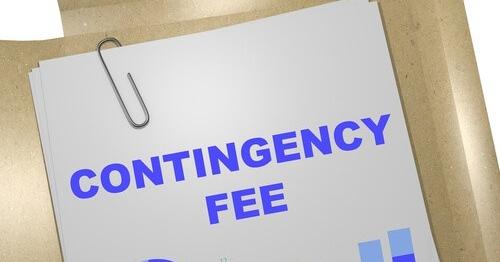When individuals face legal challenges, the prospect of high legal fees can be daunting. However, there is an alternative fee structure known as a contingency fee arrangement that allows clients to hire legal representation without upfront costs. This article delves into the world of contingency fee arrangements, exploring what they entail and how they can benefit those needing legal services.
What Is a Contingency Fee Arrangement?
It is commonly called “no-win, no-fee,” a payment arrangement between a client and an attorney or law firm. In this arrangement, clients are not required to pay any upfront legal fees. Instead, the attorney’s fees are contingent upon the successful outcome of the case. If the case is won, the attorney’s fees, usually a percentage of the settlement or award, are deducted from the client’s compensation. The client typically owes no attorney fees if the case is lost.
Common Applications
Personal Injury Cases: Contingency fee arrangements are most prevalent in personal injury cases, like car accidents, medical malpractice, or slip and fall accidents. In these cases, clients may be dealing with significant medical bills and other expenses, making it difficult to afford legal representation.
Employment Discrimination: Employment discrimination cases, including wrongful termination and workplace harassment claims, often use contingency fee arrangements. Employees who have faced signs of pregnancy discrimination and other workplace discrimination may find it challenging to pay for legal services while dealing with the aftermath of the situation.
Consumer Protection: They can also be suitable for consumer protection cases, such as class-action lawsuits against companies engaged in deceptive or harmful practices.
Benefits of Contingency Fee Agreements
Enhanced Access to Justice: One of their primary advantages is that they provide access to justice for individuals who might not have the financial means to hire an attorney otherwise, making it particularly beneficial for those interested in hiring no-win no-fee lawyers. This ensures that people with valid claims can pursue legal action without worrying about the cost.
Alignment of Interests: It aligns the interests of the attorney and the client. The attorney’s fee is directly tied to the case’s outcome, motivating them to work diligently to secure a favourable result for their client.
Risk Mitigation: Clients are not burdened with legal expenses if their case is unsuccessful. This risk-sharing arrangement encourages attorneys to take on cases they believe have merit, even if they are complex or challenging.
Efficiency: Attorneys working under contingency fee arrangements often prioritize efficiency and strive for quicker case resolutions. This can benefit clients by reducing the duration of legal proceedings.
Key Considerations
Percentage and Costs: Before entering into a contingency agreement, clients should discuss the percentage of the attorney’s fee and any associated costs, such as court or expert witness fees. These details should be clearly outlined in the agreement.
Contingency Fee Caps: In some cases, there may be caps on the recovery percentage that can be collected as attorney fees. Clients should understand if such caps apply and how they might impact the arrangement.
Out-of-Pocket Expenses: While attorney fees are contingent on success, clients may still be responsible for out-of-pocket expenses related to the case. It’s essential to clarify which costs the client will bear.
Communication and Transparency: Effective communication between the attorney and the client is crucial throughout the legal process. Clients should feel comfortable asking questions and receiving updates on the progress of their cases.
Conclusion
Contingency fee arrangements offer a valuable avenue for individuals to access legal representation when they face financial constraints. They provide a risk-sharing mechanism that aligns the interests of clients and attorneys, ensuring that valid claims can be pursued effectively. However, clients should carefully consider the terms of the agreement, including the percentage fees and potential out-of-pocket expenses, before entering into a contingency fee arrangement. When used wisely, these arrangements can provide a path to justice for those who need it most.
